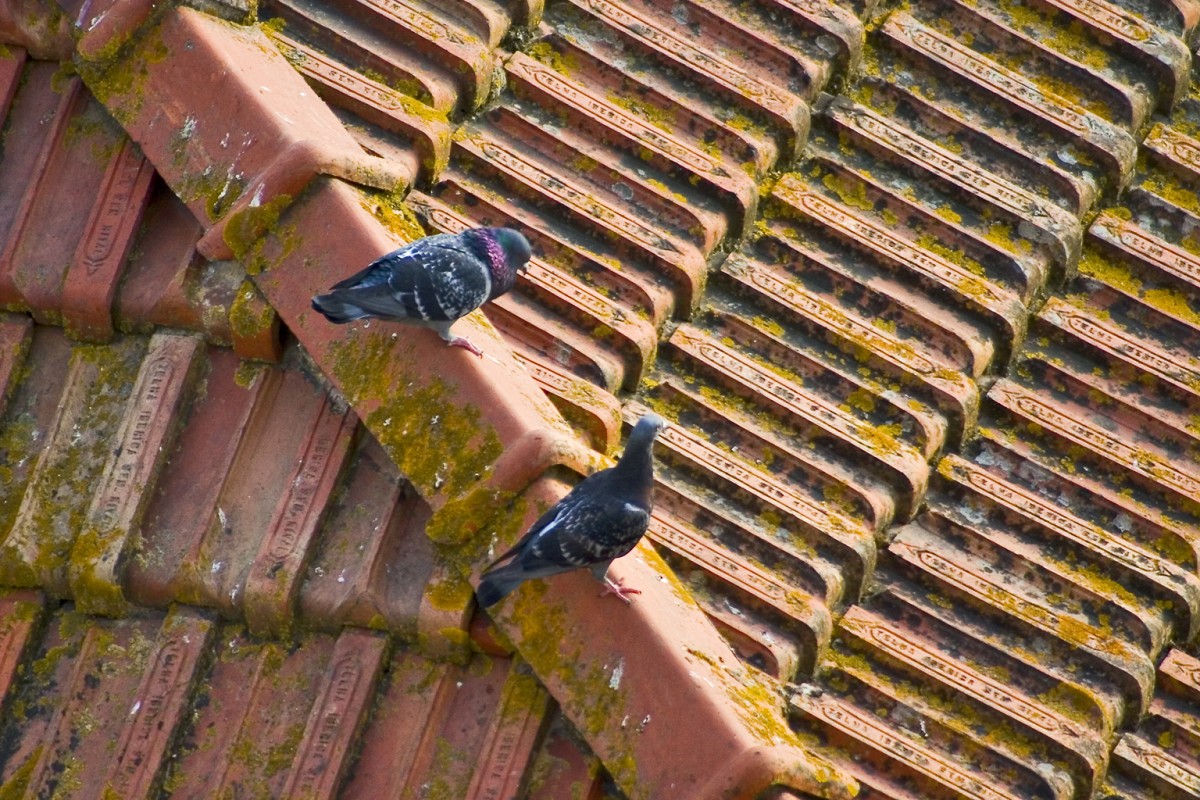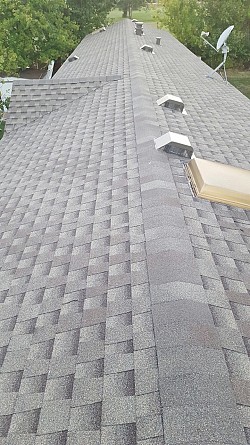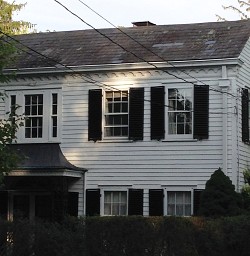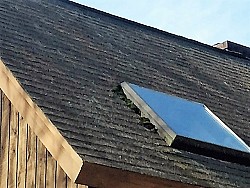What Can I Expect From Roof Inspection Cost in 2013?

There's an old joke about business consultants that goes something like this: If you ask a consultant what time it is he'll look at your watch and tell you. Many homeowners might have the same impression about roof inspectors: They look at the brown stain on your ceiling and inform you that you have a roof leak. But the fact is, evaluating a roof's condition involves a lot more than pointing out stains and missing shingles, and chances are you're not qualified for the job (nor will your insurance company put a lot of stock in your amateur assessment). So you hire it out. Here's what you can expect to pay for a roof inspection in 2013.
Three Levels of Roof Inspection Cost
Many roof inspections cost nothing. This is because they're performed by roofing contractors interested in working on your roof. It's a legit practice in the roofing business and is commonly used by homeowners in the market for repair or replacement work that's covered by an insurance claim. However, if you're buying or selling a house, this probably doesn't qualify as the kind of third-party inspection you're looking for.
The next step up in roof inspection cost -- and thoroughness -- comes with a standard comprehensive home inspection, the kind buyers normally have done before closing on a house. In this case, the cost of the roof inspection is just a portion of the total inspection fee. A good home inspection will include a general assessment of the roofing material and a fairly thorough check for potential or current problems, along with snapshots of damage and other warning signs (a lot of sources will tell that home inspectors don't get up on roofs, but if your roof is easily accessible and not overly steep, you should expect a rooftop inspection). However, it will not typically come with a roof certification, something you can get with a full-fledged roof inspection. In 2013, the average cost for a home inspection is about $300 to $500. You can decide how much of that covers the roof.
The cost of a full-fledged roof inspection in 2013 for an average-size home is about $300. What you get for this fee is a thorough inspection of the roof system, including the roofing material (shingles, etc.), flashing, chimney, gutters and downspouts, roof eaves and soffits, and roof decking (viewed from the attic, if possible). An inspection also will cover all the usual suspects for leaks, such as pipe penetrations, skylights, HVAC equipment and exhaust vents. A standard inspection is performed during dry weather, but it's also possible to obtain a water test or "leak down" inspection. In essence, this involves one inspector standing on your roof, soaking a specific area with a garden hose while a second inspector checks for leaks inside the attic. This adds to the inspection cost but might be advisable if some areas of the roof look suspect or if the roof has design features that are difficult to keep watertight over the long run.
Every full inspection should include a comprehensive report detailing the inspector's findings. Most also itemize necessary or recommended repairs and their estimated costs and provide a estimate of the roof material's life expectancy.
Factors Affecting Roof Inspection Cost
As with all contracted services, market prices vary by region or city. In addition, some roofs are simply harder to inspect than others, resulting in higher fees. The roof's pitch (steepness), material, size and complexity all can affect the inspection cost. Many inspection companies automatically charge a bit more for multistory homes. Inspections of existing roofs routinely include photo documentation of findings, but if for some reason you don't need photographic evidence, your inspection company may offer a price reduction. Certification may or may not add to the roof inspection cost, depending on the company's service package.
Roof Certification
Some states, municipalities and insurance companies require roof certification for home sales or insurance coverage and claims. This means the roof system has been inspected by an accredited inspection service company and the roof is certified against leaks for a specified period, typically two to five years. If the roof is in good shape for the initial inspection, certification may be awarded immediately. Otherwise, repairs must be made -- either by the inspection company or an affiliated roofing contractor -- before there's a final inspection to certify the roof. You can learn more about roof certification by talking to local real estate agents or visiting the websites of certification groups like the National Roof Certification and Inspection Association or Haag Certified Inspector program.
Philip Schmidt writes for Networx.com.
Looking for a Pro? Call us (866) 441-6648

Roofing Average Costs
Roofers Experiences

My Roof Replacement Was Simply Outstanding

Roof Inspection And Slate Shingle Replacement Exceed Expectations



